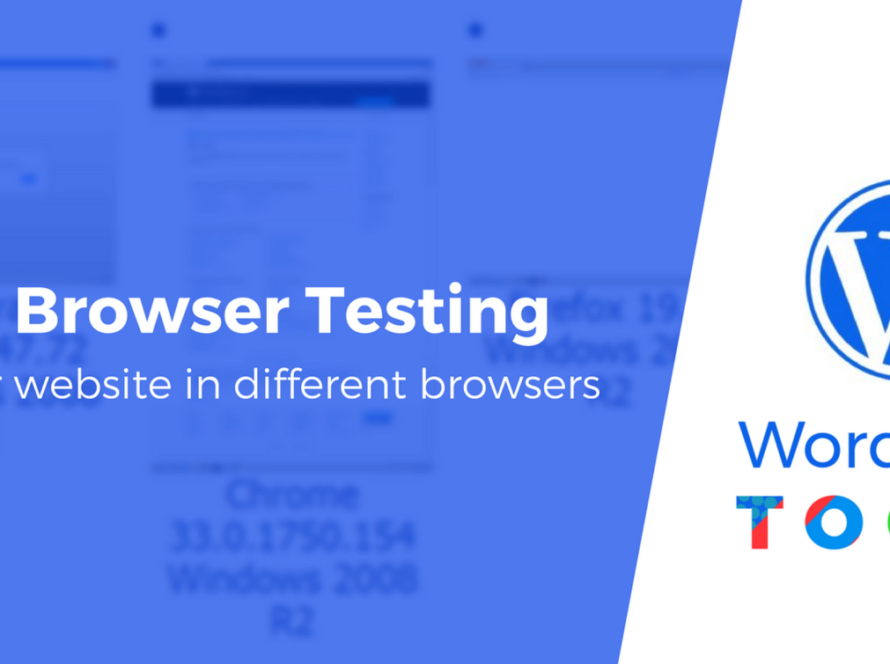Data Insights in iGaming and Sports Betting: The Need for Speed Whether it’s making a last-minute bet or spinning the reels on a slot game, users demand lightning-fast load times. A delay of just a few seconds can result in frustration, abandoned sessions, and lost revenue. In fact, research shows that 53% of mobile users leave a site that takes longer than 3 seconds to load. Whether it be a site for iGaming or sports betting, where competition is bloodier than ever and the user experience is everything, optimizing PageSpeed is not merely a technical task, but rather a business goal.
In this article, we will explore actionable strategies to optimize PageSpeed specifically for iGaming and sports betting websites. From learning how these platforms handle performance to sophisticated methods for improving speed, we’ll ensure you know all there is to ensure your site is running at full steam.
Also Read: Link Building Services Boost Your Site’s Visibility!
Let’s get started! 🎯
Why Is PageSpeed Important In The iGaming And Sports Betting Sector? 🕹️
Before we get into the “how,” let’s cover the “why.” So, why is PageSpeed so important for iGaming and sports betting websites?
User experience: Gamers and bettors are often looking for immediate gratification — whether it’s watching a live game or chasing a jackpot. Slow load times can disrupt the immersion and drive you insane.
Conversion Rates: Fast sites convert better. 92% of web users state that slow loading pages are the primary reason why they leave a website. The impact that this slow loading has on your bottom line can be significant. Google states that for every 1 second increase in page load time, convers… For iGaming websites, it could result in missed deposits or sign-ups.
SEO Rankings: Google uses PageSpeed as a ranking factor. That can affect your visibility in search results, making it harder to bring in new users.
Mobile Play: More than 60% of iGaming traffic is mobile with PageSpeed optimized for mobile being a no-brainer.
Dealing with iGaming and Sports Bets is one of the most Special Cases 🃏
The websites you develop for iGaming and sports betting aren’t your run-of-the-mill e-commerce shop or blog. They introduce certain challenges that can influence PageSpeed:
- Traffic Volumes: Traffic can surge exponentially during peak times (e.g., major sports events), stressing servers.
- Dynamic Content: Live odds, real-time updates, and interactive games necessitate constant data fetching, which can impact performance.
- Rich Media: While high-quality graphics, animations, and videos are critical to user engagement, they tend to be resource-heavy.
There are strict regulations governing many iGaming sites, and compliance can introduce layers of complexity (like geolocation checks) that slow things down.
In this case, recognising these challenges is the first key to start planning a PageSpeed optimisation strategy.
Optimizing PageSpeed: A Step-by-Step Guide 🛠️
Having said that here are some actionable steps you can take away to help you optimize PageSpeed for your iGaming or sports betting site.
Step 1: Audit Your Current Performance 🕵️
You have to see where you are before you can change your direction. Tools such as Google PageSpeed Insights, GTmetrix, and Lighthouse will give in-depth reports on your site’s performance. These tools will point out problems like large images, render-blocking resources and slow server response times.
Pro Tip: Focus much on your Core Web Vitals: metrics like Largest Contentful Paint (LCP), First Input Delay (FID), and Cumulative Layout Shift (CLS) This is extremely important for both user experience and SEO.
Optimize Images and Media 🖼️
Often the biggest potential performance issue is images and videos. Here’s how to tackle them:
Optimize Images: Compress images using TinyPNG or ImageOptim for small file sizes without losing quality.
Use Modern Formats Switch to next-gen formats like WebP which has better compression than JPEG or PNG.
Lazy Load Media: As for lazy loading, make them load only when they’re in the viewport of the user.
Use CDNs: A Content Delivery Network (CDN) can help serve media assets from locations that are closer to the user, minimizing latency.
Example: One of the leading sports betting websites was able to reduce the load time of its homepage by 40% just by switching to WebP images with lazy loading enabled.
Use Minification and Concatenation 📦
Although all the lines of code, the CSS files, the JavaScript scripts there are, they all sum up to the loading time of your page. Here’s how to make them easier:
- Minify CSS, JavaScript and HTML: By removing unnecessary characters (spaces, comments, etc.) the file sizes are reduced.
- Merge Files: Combine multiple CSS or JS files in one file to minimize HTTP requests.
- Defer Non-Critical JavaScript: Deferring the loading of scripts that are not needed to render the page.
Consider using build tools like Webpack or Gulp for these tasks, then follow the tips below.
5. Leverage .htaccess for Performance Boosts ⚙️
The .htaccess file is a powerful configuration file used on Apache servers to control various aspects of your website’s behavior. When used correctly, it can significantly improve PageSpeed. Here’s how:
- Enable Gzip Compression: Compressing your files reduces their size, leading to faster load times. Add the following code to your
.htaccess
<IfModule mod_deflate.c>
AddOutputFilterByType DEFLATE text/html text/plain text/xml text/css application/javascript application/json
</IfModule>- Leverage Browser Caching: Store static resources (like images, CSS, and JavaScript) in the user’s browser cache to reduce repeat visits to your server. Add this to your
.htaccess
<IfModule mod_expires.c>
ExpiresActive On
ExpiresByType image/jpg "access plus 1 year"
ExpiresByType image/jpeg "access plus 1 year"
ExpiresByType image/gif "access plus 1 year"
ExpiresByType image/png "access plus 1 year"
ExpiresByType text/css "access plus 1 month"
ExpiresByType application/javascript "access plus 1 month"
</IfModule>- Redirect Trailing Slashes: Ensure consistent URLs by redirecting URLs with trailing slashes to those without (or vice versa). This prevents duplicate content issues and improves efficiency:
RewriteEngine On
RewriteCond %{REQUEST_FILENAME} !-d
RewriteRule ^(.*)/$ /$1 [L,R=301]Pro Tip: Always back up your .htaccess file before making changes, as incorrect configurations can break your site.
Server Performance Optimization 🖥️
Your server is your website’s backbone, and it directly affects PageSpeed. Here’s how to optimize it:
- Optimize Your Hosting: There are many types including dedicated servers, cloud hosting and more.
- Caching Approach: Use server-side caching (such as Redis or Memcached) to cache popular data and decrease response times.
- CDN: Not only does a CDN speeds up media delivery, but it also puts a lesser load on your origin server.
Example in Action: One such use case for a cloud-based hosting solution with caching built into the architecture is sports gaming, where an iGaming platform improved server response times by 30% after making a move to a cloud based solution.
Implement AMP for Key Pages ⚡
The Accelerated Mobile Pages (AMP) framework is focused on providing mobile users with near-instant load speeds. It’s definitely not something you’d use for every page (it has its limits), but it can be a game changer when applied to key pages such as landing pages or registration forms.
For example, a sports betting site found that their AMP login page cut load time from 5 seconds to less than 1 and increased conversion by 15%
Continuous Monitor and Test 📊
PageSpeed optimization is not a task you perform once, but rather an ongoing process. Use tools that can help you monitor your site’s performance on a regular basis (e.g. New Relic, Datadog). Specifically, run A/B tests to understand how changes affect user behavior and conversions.
Pro Tip: Configure alerts for performance degradation — particularly useful during high-traffic occasions such as large-scale sports events.
Strategies for iGaming and Sportsbooks Sites 🏇
If you’re looking to take things a step further, here are some advanced strategies optimized for the unique needs of iGaming and sports betting websites:
Wave Computing in Edge Updaters
Edge computing enables you to process data nearer to the user, minimizing latency for real-time updates such as live odds or game scores. You can implement this using platforms like Cloudflare Workers or AWS Lambda@Edge.
Use of WebSockets for Real-Time Interaction
WebSockets are a protocol that enables two-way communication between the client and server on the web in real-time. This is ideal for live betting or multiplayer games, where delay can spoil the party.
Progressive Web Apps (PWAs)
Progressive Web Apps (PWA) bring together the advantages of website and mobile application — speed, offline working, and push alerts. They’re especially powerful for iGaming sites who want to enhance mobile engagement.
So in conclusion, speed wins the race! 🏁
In the fast-paced world of iGaming and sports betting, PageSpeed is more than just a technical statistic — it’s a pivotal point that can determine the success or failure of your enterprise. With an awareness of your industry’s painpoints and using the solutions above, you can create a fast, seamless user experience that will keep users engaged and returning for more.
You have a time period to optimise but be mindful that optimising is not something that ends. Keep up the testing and always consider the user expenence first. After all, in the battle for user attention, there’s no greater advantage than speed. 🚀


